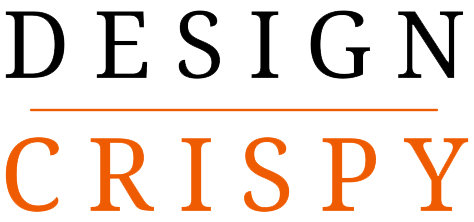Maintaining optimal oral health is vital for a confident smile and overall well-being. A comprehensive dental care routine, combined with regular visits to a dentist, forms the foundation of a healthy mouth.For comprehensive Pflugerville Dental Care Texas, trust Urban Smiles Pflugerville Dentistry. Our dedicated team is committed to providing high-quality dental services, utilizing the latest techniques and technologies to ensure optimal oral health and beautiful smiles for our patients. In this article, we will provide you with an essential guide to dental care, covering important practices and habits that will help nurture your oral health. From brushing techniques to dietary recommendations, read on to discover how you can prioritize your dental care and achieve a radiant smile.
The Basics of Dental Care
1. Brushing Your Teeth
Brushing your teeth twice a day is the cornerstone of dental care. Use a soft-bristled toothbrush and fluoride toothpaste. Hold the brush at a 45-degree angle and brush in gentle, circular motions. Pay attention to all tooth surfaces, including the front, back, and chewing surfaces. Don’t forget to brush your tongue to remove bacteria and freshen your breath.
2. Flossing Daily
Flossing is equally important as brushing. It removes plaque and food particles from between your teeth and along the gumline. Take about 18 inches of dental floss and wrap it around your fingers. Gently insert the floss between your teeth, moving it back and forth in a C-shaped motion. Be sure to reach both sides of each tooth, including the gumline.
3. Using Mouthwash
Mouthwash can complement your brushing and flossing routine by killing bacteria and freshening your breath. Choose an antimicrobial mouthwash recommended by your dentist. Rinse your mouth for the time specified on the bottle, typically around 30 seconds. Spit out the mouthwash after rinsing; do not swallow it.
4. Choosing the Right Dental Products
Select dental products that are approved by dental associations and bear the ADA (American Dental Association) seal. This ensures they meet quality and safety standards. Replace your toothbrush every three to four months or sooner if the bristles become frayed. Consider using an electric toothbrush, which can provide a more thorough cleaning.
Maintaining a Healthy Diet for Dental Health
1. Limit Sugary and Acidic Foods
Frequent consumption of sugary and acidic foods and beverages can contribute to tooth decay. Limit your intake of candies, sugary drinks, sodas, and acidic fruits. When you do consume these foods, brush your teeth afterward or rinse your mouth with water to minimize their impact.
2. Eat Nutrient-Rich Foods
A balanced diet rich in essential nutrients is beneficial for dental health. Include foods such as fruits, vegetables, whole grains, lean proteins, and dairy products. These provide vitamins, minerals, and other nutrients that support healthy teeth and gums.
3. Stay Hydrated with Water
Water is the best beverage for your dental health. It helps rinse away food particles, stimulates saliva production, and maintains proper hydration. Drinking water throughout the day can help neutralize acids in the mouth and reduce the risk of tooth decay.
The Importance of Regular Dental Check-ups
Regular visits to the dentist are crucial for maintaining optimal oral health. Here’s why:
1. Professional Cleaning
During a dental check-up, a dental hygienist will perform a professional cleaning, removing plaque and tartar buildup that cannot be eliminated through regular brushing and flossing. This helps prevent gum disease and cavities.
2. Comprehensive Examination
The dentist will conduct a thorough examination of your teeth, gums, and mouth. This allows for the early detection of dental issues such as cavities, gum disease, and oral cancer. Early intervention can prevent these problems from worsening and requiring more extensive treatments.
3. Personalized Oral Health Advice
Your dentist can provide tailored advice on oral hygiene practices, including brushing and flossing techniques specific to your needs. They can address any concerns you may have and recommend preventive measures or treatments based on your oral health status.
4. X-rays and Diagnostic Tests
Dental check-ups often include X-rays or other diagnostic tests to evaluate the health of your teeth and jawbone. These tests can reveal hidden dental problems such as impacted teeth or bone loss.
Conclusion
Nurturing oral health is essential for a beautiful smile and overall well-being. By following a proper dental care routine, maintaining a healthy diet, and regularly visiting your dentist, you can safeguard your oral health and enjoy a lifetime of healthy smiles. Remember to brush and floss diligently, choose dental products approved by dental associations, and make healthy dietary choices. With these practices and regular dental check-ups, you can achieve optimal oral health and preserve the natural beauty of your teeth.

